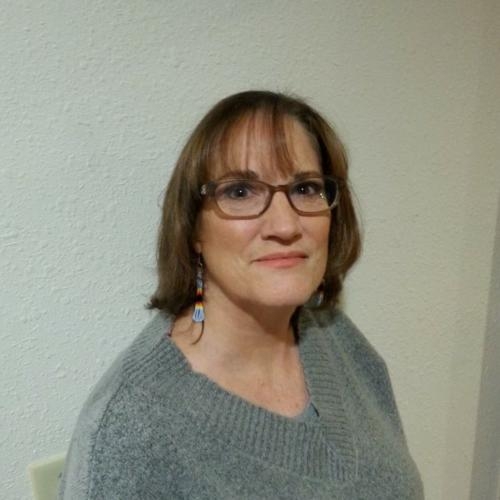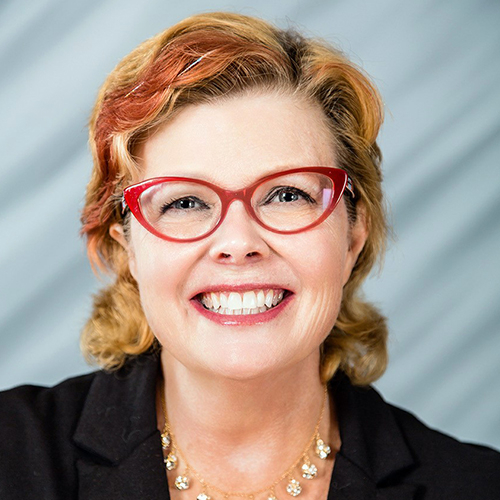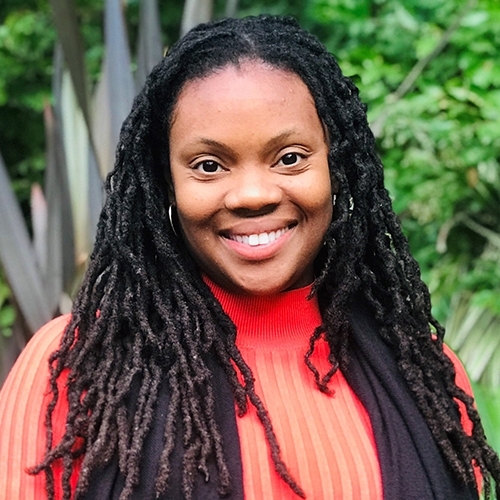 Perinatal Mental Health Online Course(s) & Continuing Education
Perinatal Mental Health Online Course(s) & Continuing Education
Access the latest clinical skills and research for Perinatal Mental Health for Postpartum professional training. These Perinatal Mental Health online courses provide practice-changing skills and valuable perspectives from leading global experts. This Perinatal Mental Health education has been accredited for a variety of CEUs / CERPs and can be accessed on-demand, at your own pace.

The Importance of Addressing Mental Health & Wellbeing During Pregnancy

Dr Raja Gangopadhyay is a Consultant Obstetrician & Gynaecologist at the West Hertfordshire Hospitals NHS Trust, UK, with a special interest in Perinatal Mental Health (PMH) and a Visiting Lecturer at the University of Hertfordshire (UK). In conjunction with his multidisciplinary team, Raja has been championing joint approaches to perinatal mental health that take into account infant mental health. Raja is a well-known Trainer in PMH and organises teaching, training and Conference for Obstetricians, Midwives, GP and other healthcare professionals. He is a renowned speaker and has been invited to speak at many National and International events. He obtained a Certificate in Medical Education from the University of Bedfordshire, UK. He has been invited to House of Lords meeting as a member of the Expert panel and organised and chaired events at the House of Commons (UK Parliament). He has been invited to many media interviews (Radio/ Television) and views/ opinions have been quoted in many leading UK newspapers. He is the Founder of the International Forum for Wellbeing In Pregnancy (IFWIP): a unique initiative to raise awareness of mental wellbeing during pregnancy from a global perspective (www.ifwip.org)
The presentation will start with the global statistics of mental health conditions during pregnancy and the economic cost to health and social care. Then the impact of stress and mental health problems during pregnancy will be discussed with an outline of 'Foetal Programming'. Subsequently, the practical aspects of care of Perinatal Mental Health conditions will be elaborated with a focus on screening, Care Planning, use of medication during pregnancy and breastfeeding. An outline of the concept of wellbeing will be discussed with lifestyle modification and stress management strategies (NURTURE Approach).

The Process of the Listening Visit – Challenges and Successes

Jane has worked in London, Swansea, Bahamas and Oman, as a Mental Health Nurse, Registered Nurse and Health Visitor. She retired from her last post as Senior Lecturer in Public and Mental Health, and now has honorary status. Jane was the first health visitor to be made the President of the United Kingdom Marcé Society and then the International Marcé Society for Perinatal Mental Health. She is currently on the Executive Board of the Marcé Society and is the Director of her training company in Perinatal Mental Health. Many of her courses have been accredited by the Continuing Professional Development Service. Jane is also working closely with the All Wales Perinatal Group and has been involved in many national and international groups.
Topic: The Process of the Listening Visit – Challenges and Successes - [View Abstract]
Employing the philosophy of the Listening Visit can be a daunting task for some practitioners as it contravenes the need for prescriptive interventions. The key to the Listening visit is empathetic responses, developed by paraphrasing, reflecting and summarising what the parent has said. The clear understanding of the difference between thoughts and feelings can help clarify the parent’s reasoning. Sound interpretation of the parent’s emotions, experiences and subsequent behaviours, can convey thoughts from a superficial to a more intense level. Maintaining this attention to detail allows the parent to remain focused, and, as a partnership, the mother and health worker can explore coping strategies, problem solving and cognitive behavioural techniques. It is important to consider the mental well being of the Practitioner and this is explored to ensure that they are also aware of their own thoughts and feelings.


Maryl Smith, LDM, CPM, has been attending out-of hospital births in Oregon for 38 years. Her degree in theology with a counseling emphasis and her involvement in Native American community generated a growing awareness of the deep need for safe maternity care settings where survivors of trauma could thrive. So she and her midwifery partner intentionally set out to educate themselves and create that environment. They are forever grateful to their best teachers: the amazing women who entrusted them with their care.
Maryl has taught on staff at Birthingway College of Midwifery and served on the Diversity and Preceptor boards. She has led women’s support groups, provided counseling for non-profit organizations and correctional institutions and co-facilitated a drug and alcohol recovery group. She continues to teach at conferences in the US and abroad, training providers how to naturally integrate trauma-informed practice with their patient care. Her articles on this topic have been published in Midwifery Today.
When she isn’t catching babies, Maryl embarks on adventures with her granddaughters, creates music with her musician husband or takes pen in hand and attempts to write something interesting.
The art of trauma informed intake is more than just including a couple of questions on your intake history. When the right questions are asked in a non-threatening way, you can become the trusted recipient of sensitive information that is vital to the quality of care that you provide. This class will enable you to plan and create a trauma-safe environment at the very first patient visit. You will develop written and verbal forms of inquiry that cover a broad range of trauma history and will learn to facilitate patient disclosures in a compassionate, effective way. You will be able to identify indicators of trauma history in the absence of patient disclosure and learn to connect the coping mechanisms your patient exhibits to the type and duration of their trauma history. You will learn how to elicit your patient’s self-identified strengths and resources which you can use to develop an effective treatment plan. Your individualized approach will positively influence patient trust, safety, health and emotional well-being. Most importantly, it will avoid the re-traumatization that so often happens in medical settings which erode the success of future healthcare encounters.

Thought Patterns, Relationship Patterns, and Postpartum Depression

Dr. Kimberly Thompson is a licensed psychologist in Texas. She works with people across the life span, but the majority of her clinical work centers around the special concerns of women and children.
Dr. Thompson is a published researcher, author, and teacher. She teaches in the Infant & Early Childhood Development Ph.D. program, Fielding Graduate University, and has recently authored “Perfect Mothers Get Depressed,” a book on the cognitive and relational roots of postpartum depression.
Dr. Thompson has been married to Dr. Charles D. Thompson, an obstetrician-gynecologist, since 1985. The two Drs. Thompson have four children and one grandchild.
We will explore how dysfunctional thought patterns and habitual ways of being in relationships, based on life experiences, contribute to a woman’s approach to motherhood and the development of postpartum depression.

View Details / Enroll

Trauma and Breastfeeding: Working Effectively with Trauma Survivors

Dr. Kendall-Tackett is a health psychologist and International Board Certified Lactation Consultant, and the Owner and Editor-in-Chief of Praeclarus Press, a small press specializing in women's health. Dr. Kendall-Tackett is Editor-in-Chief of the journal, Psychological Trauma and was Founding Editor-in-Chief of Clinical Lactation, a position she held for 11 years. She is Fellow of the American Psychological Association in Health and Trauma Psychology, Past President of the APA Division of Trauma Psychology, and a member of APA’s Publications and Communications Board.
Topic: Breastfeeding Helps Mothers Overcome the Legacy of Abuse and Adversity: It Makes All the Difference - [View Abstract]
Topic: Burnout, Compassion Fatigue and Self-Care for Members of the Perinatal Team - [View Abstract]
Topic: Burnout, Secondary Trauma, and Moral Injury in Perinatal Care Providers - [View Abstract]
Topic: Does Breastfeeding Protect Maternal Mental Health? The Role of Oxytocin and Stress - [View Abstract]
Topic: Lessons to Learn from Fed Is Best: How Can We Improve Our Care? - [View Abstract]
Topic: Mother-Infant Sleep Location: It's Not as Simple as it Seems - [View Abstract]
Topic: Trauma and Breastfeeding: Working Effectively with Trauma Survivors - [View Abstract]
Topic: What’s New in Postpartum Depression? A Summary of Current Findings - [View Abstract]
Trauma affects at least one third of childbearing women. Although a common experience, many breastfeeding counselors do not feel confident in working with trauma survivors. Should they ask about it? How do you stay within your scope of practice? This session will provide an overview of the types of trauma women are most likely to experience (childhood abuse, birth trauma, sexual assault, partner violence, natural disaster, and combat), and provide strategies for working effectively and comfortably with trauma survivors. This session also provides an overview of research showing that breastfeeding actually helps trauma survivors cope and lessens the risk of intergenerational trauma.

Trauma-Informed Care in the Newborn Intensive Care Unit: Promoting Safety, Security, and Connectedness

Dr Marilyn R Sanders is a board-certified pediatrician and neonatologist who cares for critically ill babies, infants, and their families at the Connecticut Children’s Medical Center Newborn Intensive Care Unit in Hartford, CT. Dr Sanders did her pediatric residency at the University of Connecticut School of Medicine and her fellowship in Neonatal-Perinatal Medicine at Johns-Hopkins School of Medicine. She is a Professor of Pediatrics at the University of Connecticut School of Medicine. She also provides neurodevelopmental follow-up for babies and infants up to 3 years old. Her scholarly interest is providing trauma-informed care to hospitalized newborns, infants, young children, and their families. Her focus is the impact of the autonomic nervous system’s sense of safety, danger, or life threat on our emotions and behavior. She lectures throughout the United States and Europe. She has authored papers and book chapters on trauma-informed care for young infants, children, and their families in the hospital setting. Dr Sanders is currently under book contract with WW Norton and Company. Her book, to be published in 2020, discusses implications of the Polyvagal Theory, for the well-being and development of infants, children, and adolescents.
Human infants expect to engage and connect to their adult care providers to feel safe, secure, and thrive. The autonomic or unconscious nervous system alerts us whether we feel safe, in danger, or in a life-threatening situation. When we feel safe, we are open, calm and ready to engage. When we feel in danger, our sympathetic nervous system is activated; our hearts race, and we may either lash out or leave. Finally, if we feel our lives are endangered, we may collapse, shut down or dissociate. Neuroscientist Stephen Porges calls the unconscious awareness of our safety, danger, or life threat, neuroception.
When babies are hospitalized in a newborn intensive care unit. (NICU), their biological expectancies of physical and emotional proximity to their caregivers are disrupted. Both hospitalized babies and their families may have neuroceptions of danger or even life threat reflected in their behaviors and vital signs. Supporting parasympathetic vagal tone through the continuous presence of families, skin to skin care, and forming strong relationships can mitigate the trauma of a hospitalization in the NICU.
Trauma-informed care in the NICU supports babies and their families to remain together, supports parents as the primary relationship for their babies and builds safety, security, and connectedness among babies, families, and staff.


Mickey Sperlich, an assistant professor with the UBSSW, is an experienced midwife and researcher who studies the effects of trauma and mental health challenges on women’s childbearing and postpartum experiences and outcomes. She became interested in research in order to better understand the needs of her midwifery clients who were trauma survivors. Her first research project culminated in the book “Survivor Moms: Women’s Stories of Birthing, Mothering and Healing after Sexual Abuse,” which was named the 2008 Book of the Year by the America College of Nurse Midwives. Sperlich has taken part in several trauma-focused perinatal studies and is co-author of a psychosocial intervention for pregnant survivors of abuse, the “Survivor Moms’ Companion.” She completed her PhD with a dual title in Social Work and Infant Mental Health at Wayne State University in Detroit, Michigan, in 2014. Sperlich says, “I am committed to developing trans-disciplinary approaches to understanding and addressing the sequelae of sexual violence and other trauma, particularly for childbearing women. I am actively involved in developing and evaluating interventions which address issues experienced by survivors of trauma and which are directed at interrupting intergenerational cycles of violence and psychiatric vulnerability.”
This presentation will apply a trauma-informed lens to understanding how cycles of violence and psychiatric vulnerability affect women and their families during the childbearing year. Recent research shows how exposure to sexual trauma and other forms of child maltreatment and individuals’ reactions to such exposures in the form of posttraumatic stress and depression in particular imparts risk for adverse outcomes for mothers and babies. Recent advances in the field of epigenetics and neurobiology also show how enduring the effects of trauma can be. Fortunately, evidence is also emerging which suggests how trauma-informed and trauma-specific interventions can disrupt these cycles and ameliorate the effects of trauma. This session will overview current recommendations and best practices for adopting trauma-informed principles for any human service organization, and will specify how these recommendations can be applied to perinatal settings.

Trauma-Informed Care: A Guide to Patient Advocacy for Trauma Survivors

Mandy Irby, pronouns are she/her, is a board certified labor nurse with 13 years of experience supporting survivors of assault and trauma through pregnancy, birth planning, and at their bedside during childbirth and pregnancy loss. After experiencing her own birth trauma, she quickly learned that the birth care system is NOT centered on human rights, patient choice, and the individual experience. In 2020, Mandy made education a full-time career. She now teaches and supports parents and nurses how to better center voice, choice, and physiology in birth. It's Mandy’s mission to change birth culture so that it's parent-centered, trauma-informed, and safe for all.
Mandy enjoys teaching in-person, in whole-team learning: Peanut Ball, Labor Support Skills and Trauma-Informed Care At the Bedside workshops. She also supports local parents with small-group Spinning Babies® Parent Classes when in-person learning is safest. Mandy is also an international educator through her online, on-demand childbirth ed classes and she supports anxious parents-to-be with virtual, one-on-one trauma-informed birth strategy sessions. She’s the co-founder of Fearless Birth, Delivered, founder and owner of The Birth Nurse®, and a proud co-creator of the BRAND NEW Trauma-Informed Birth Nurse Program. As a creative educator, Mandy is also the co-author of an Amazon best-seller, Baby Got VBAC, and reaches millions of viewers each month through her engaging, tongue-in-cheek social media platforms.
When she’s not working from home, Mandy might be found at any local plant nursery adding to her, some may say, out-of-control house plant collection. She’s a serial craft starter and non-finisher, loves walking her doodle puppy, and playing in the creek with her 2 kids.
Topic: Trauma-Informed Care: A Guide to Patient Advocacy for Trauma Survivors - [View Abstract]
Thanks to the brave whistle blowers who have shared their stories, the community at large has become increasingly aware of the prevalence of sexual assault and trauma. Healthcare professionals report a lack of education specifically related to the care of assault survivors and an eagerness to learn trauma-informed care practices. A shift in care practice is nearly impossible, however, if healthcare professionals, especially nurses, hold a feeling of perceived powerlessness in their professional role. In this session, we’ll review patient advocacy definitions as they relate to a patient-centered standard of care. Participants will also learn how to provide compassionate, trauma-sensitive care to survivors of trauma while preventing further harm. Instead of feeling powerless, participants can begin to develop awareness of the unique superpowers that perinatal healthcare providers possess and receive a foundational understanding for how to be strong, confident patient advocates.


Dr. Sayida Peprah is both a licensed clinical psychologist and birth doula, with over 10 years of experience in both fields. She specializes in multicultural psychology, trauma, suicide prevention and maternal mental health. Dr. Sayida has a multi-faced career as a psychologist, diversity and cross-cultural educator, and community-based doula program director. Dr. Sayida is also the Founder and Executive Director of the non-profit organization Diversity Uplifts, Inc., who's mission is “fostering diversity and supporting communities and the providers who serve them.
An advocate for human rights in childbirth, Dr. Sayida is a member of the Black Women Birthing Justice Collective and a Collaborator with the Black Mamas Matter Alliance, promoting research, education and community-based services to positively transform the birthing experiences of black families. Dr. Sayida has served and continues to serve on advisory committees including Perinatal Equity Initiative Committees, and formerly the California Maternal Suicide Review Committee and others aimed at identifying key risks and opportunities for quality improvement and prevention around disparities.
The occurrence of a suicide during pregnancy or up to one year postpartum is a rare but tragic event. While we expect that family members will be at a loss for how to detect or care for an acutely mentally ill loved one, it is concerning that many perinatal/maternal care and support professionals also report feeling unprepared and ill equipped to recognize and address the needs of patients in this situation. Additionally, publications on maternal mortality generally do not include information on maternal suicide, limiting providers access to updated research on the topic. During this presentation, maternal suicide research findings, as well as clinical considerations will be reviewed. Maternal suicide risks, symptoms, cultural considerations and recommendations for prevention and intervention will be reviewed. Practical scenarios for what to do in real situations will be highlighted.

Unpacking the concept of “Holding Space”: Beyond rhetoric toward action in supporting survivors of trauma in the childbearing years

An advocate for women, Jodi Hall has dedicated herself to understanding the impact of traumatic events on the childbearing years, and toward creating solutions designed to change lives. Jodi shares her knowledge on topics related to trauma in the lives of mothers through workshops and training sessions for healthcare professionals, counsellors and social service workers throughout the world.
Jodi has worked as a doula since 1995, and a woman’s abuse counsellor where Jodi gained experience working directly with women experiencing abuse. It is through years of sharing spaces with women experiencing abuse, that Jodi’s much sought after way of ‘being with’ women was nurtured.
Jodi Hall holds a PhD in Health and Rehabilitation Sciences from the University of Western Ontario. Jodi has been instrumental in various research studies on marginalized women’s access to services that promote health. She resides with her family in London, Ontario, where she co-runs a private counseling practice with Amanda Saunders, MSW, RSW and Holly Gibson, MSW, RSW, who are also skilled birth workers, called Sharing Spaces.
Topic: Unpacking the concept of “Holding Space”: Beyond rhetoric toward action in supporting survivors of trauma in the childbearing years - [View Abstract]
Topic: “If They Just Knew Better, They’d Do Better”: Care Provider Myths, Transliteracy, and the Need for a Trauma Informed Approach in Reproductive Care - [View Abstract]
The concept of “Holding Spaces” is often used to frame the way individuals enter into and bear witness to the stories, often of suffering, of others. How does this concept get enacted in a practical sense, what does it look like, sound like, feel like to hold space? How does the concept of holding space relate to trauma informed care? In this presentation, participants will be introduced to the principles of trauma informed care in a clinical context. A review of various approaches to holding spaces will be presented, including the emergence of the concept, range of applications, and common elements that are present across environments. Lastly, through a trauma informed lens, practices that enhance safety will be highlighted in moments when we “hold space” with our clients.














